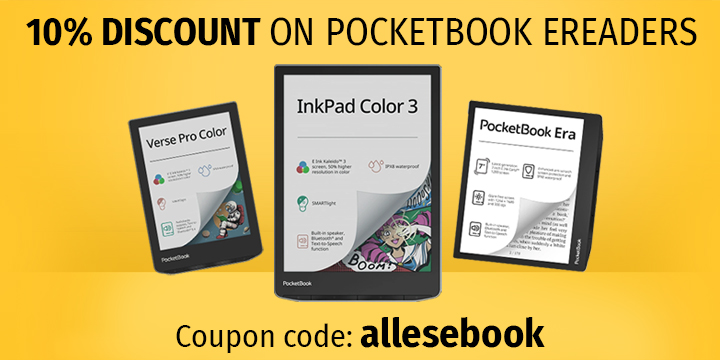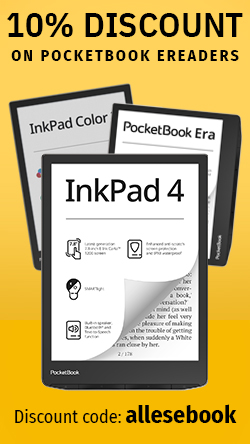Amazon, Kobo, and Sony Seek Exemption from U.S. Accessibility Requirements for eBook Readers
As reported by Teleread, three major eBook reader manufacturers in the USA have joined forces to be exempted from a part of the telecommunications law that obliges them to develop accessible reading devices for people with disabilities. Specifically, this concerns Sections 716 and 717 of the Communications Act and Part 14 of the Commission’s Rules, which require accessible access to advanced communications services (ACS) and devices for people with disabilities.
The self-proclaimed Coalition of E-Reader Manufacturers argues that eBook readers are no more accessible than printed books and, furthermore, are not advanced devices in the sense of ACS. Even (or perhaps especially) the public is aware of the differences between tablets and eBook readers. Building eBook readers according to ACS regulations would require fundamental changes, which would negatively impact costs, form, user interface, and battery life, pushing eReaders more towards tablets. Moreover, these changes wouldn’t provide meaningful benefits for people with disabilities anyway.
Pros and Cons
That’s the argument of the three manufacturers. The petition also goes into detail about why eBook readers do not fall under the ACS device category at all. And I tend to agree. eBook readers are indeed not advanced communication devices. The wireless connection ultimately serves only the purpose of downloading eBooks and, if necessary, using the translation function. A comparison to a tablet is almost unnecessary given the sometimes very different hardware and software specifications.
However: Just because eBook readers may not necessarily fall under this regulation does not mean that accessible eBook readers are not desirable. On the contrary. The digital reading devices with eInk display are actually ideally suited for use by visually impaired individuals. The ability to adjust font size in eBooks is a significant advantage over printed text on paper. A text-to-speech function, as found in some devices, is also clearly beneficial.
The issue, however, lies in the operability of the devices. The menus on eBook readers are often not scaleable in size, making them challenging to use for people with visual impairments.
It seems strange that Amazon is part of this coalition, because just a year ago a deal was in progress with the US State Department to deploy Kindle Touch eBook readers in US educational institutions worldwide. This deal, which would have brought Amazon approximately $13.4 million, ultimately failed due to resistance from the National Federation of the Blind, which criticized the lack of accessibility of the device. So, instead of making improvements, Amazon decided to go the other way. A pity.
Situation Not Hopeless
That not all manufacturers are against such changes is shown by the example of PocketBook. While Sony and Amazon have distanced themselves from audio output and the text-to-speech function, offering no audio output in the current eBook readers, you can still rely on an – even improved – speech function with the PocketBook Touch Lux. A look at the PocketBook Reader App for Android may also show the company’s future path, as the app allows size adjustment of control elements. However, it remains unclear whether this function will eventually make its way to the company’s eBook readers.
Nevertheless, the situation is not entirely hopeless for Sony, Kobo, and Amazon fans, as the FCC might only grant a postponement, which would still require the companies to produce accessible eBook readers in the future. This wouldn’t be the first time, as other companies have already been granted such a postponement until October 2015.
The timeframe until 2015 would likely be large enough to allow a natural transition to accessibility, which would be easier and less complicated with more powerful hardware and faster displays. Whether this will actually happen, or if manufacturers will engage in a price war to produce the most cost-effective devices without regard for accessibility, is another matter entirely.

